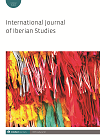- Home
- A-Z Publications
- International Journal of Iberian Studies
- Previous Issues
- Volume 27, Issue 1, 2014
International Journal of Iberian Studies - Volume 27, Issue 1, 2014
Volume 27, Issue 1, 2014
-
-
Crisis management, re-centralization and the politics of austerity in Spain
More LessAbstractThe main focus of the article is on understanding the role of the state as a key agent of crisis management within the context of an unfolding global financial crisis. This goes against contentions of the diminishing role of the state and the emergence of a political space that could be described as post-national. Drawing on examples from Spain, the article analyses the challenges of crisis management within the context of a high level of regional autonomy and the presence of highly charged arguments for and against decentralization. The article also argues that these debates are embedded into concrete institutional, political and economic processes that in the case of Spain are associated with the highly complex relationships between different levels of government. Building on a distinction between necessary and contingent aspects of crisis management, the article argues that one of the specificities of the Spanish case is the consolidation of a diverse set of ideas associated with the centre-right as one of the unintended consequences of the unfolding crisis and the process of its management by the Spanish state.
-
-
-
Smoke and mirrors: How regional finances complicate Spanish-Catalan relations
More LessAbstractThis article examines the relationship between the form of fiscal decentralization in Spain and the rise in tensions between the Spanish and Catalan governments during the financial crisis, in particular from mid-2010 to mid-2013. As a profound budgetary crisis unfolded at regional government level in Spain, long-standing disputes over the regional financing system and its methods of redistribution among the seventeen autonomous communities escalated. Most notably, Catalonia, one of the most indebted regions, attributed its financial woes in part to over-redistribution. This is not a straightforward connection, but the lack of clarity regarding both the workings of the regional financing system and the causes of the regions’ varying levels of fiscal (in)compliance reduced accountability and fuelled disputes among central and regional governments, giving both sides scope to offer different interpretations. The smoke and mirrors regarding regional finances combined with the nature of intergovernmental dynamics in Spain contribute to explaining the persistent inability to resolve regional fiscal problems and agree a long-lasting reform of the regional financing system.
-
-
-
Espectros, trauma e historia: La ‘hauntología’ de Guillermo del Toro en El espinazo del diablo
More LessBy Jesús RoderoAbstractEn El espinazo del diablo (2001) el director mexicano Guillermo del Toro ofrece una re-visión/re-escritura en clave sobrenatural de la guerra civil española. Ha habido entre la crítica visiones encontradas sobre la significación de la inserción de lo sobrenatural en el contexto histórico concreto de la guerra civil española. Mientras parte de la crítica hace hincapié en el supuesto carácter finalista y revisionista de este film por su re-interpretación y re-localización de la historia a través de una brillante yuxtaposición de lo irreal y lo real que refuerza la denuncia de los horrores y traumas de la historia (Hardcastle); otra parte resaltan las contradicciones que parecen definir a los personajes para hacer una interpretación ‘hauntológica’ de la película (Brinks, Lázaro-Reboll).
Este trabajo explora la interrelación entre las dos estructuras de El espinazo del diablo, la histórico-referencial y la sobrenatural, para ver hasta qué punto las convenciones del género del horror refuerzan o diluyen la dimensión histórica del film y hasta qué punto el ‘mensaje político’ se puede considerar una recreación catártica de la historia o un cuestionamiento sin resolución final sobre los traumas del pasado. Para ello, nos apoyaremos fundamentalmente en la teoría ‘hauntológica’ de Jacques Derrida y en otros estudios sobre lo fantástico y espectral más recientes (algunos mencionados arriba) que han aplicado las teorías derridianas al cine de la guerra civil.
-
-
-
The cultural discourse of contemporary Portuguese Iberianism
More LessAbstractIn contemporary times, Iberianism has been one of the most important themes in the relationship between Portugal and Spain. But there are few words as ambiguous in the peninsular history and culture as the word ‘Iberianism’. Aside from traditional political or territorial Iberianism, and often in a critical reaction against it, there exists a less-known cultural, spiritual or civilizational Iberianism, striving for an approximation between the two countries and its peoples that excludes all kinds of state fusion and border suppression, and aims to strengthen the Iberian relationship through unity in diversity, differentiation with complementation, independence with alliance and neighbourhood with friendship. The aim of this article is to explore the cultural discourse of contemporary Portuguese Iberianism, drawing on the reflections produced on the subject by such authors as J. P. de Oliveira Martins, Teixeira de Pascoaes, Fernando Pessoa, António Sardinha, Almada Negreiros, José Saramago, Eduardo Lourenço, Natália Correia and Miguel Torga.
-
Volumes & issues
-
Volume 37 (2024)
-
Volume 36 (2023)
-
Volume 35 (2022)
-
Volume 34 (2021)
-
Volume 33 (2020)
-
Volume 32 (2019)
-
Volume 31 (2018)
-
Volume 30 (2017)
-
Volume 29 (2016)
-
Volume 28 (2015)
-
Volume 27 (2014)
-
Volume 26 (2013)
-
Volume 25 (2012)
-
Volume 24 (2011 - 2012)
-
Volume 23 (2010)
-
Volume 22 (2009)
-
Volume 21 (2008)
-
Volume 20 (2007)
-
Volume 19 (2006 - 2007)
-
Volume 18 (2005)
-
Volume 17 (2004)
-
Volume 16 (2003 - 2004)
-
Volume 15 (2002 - 2003)
-
Volume 14 (2001)
Most Read This Month


